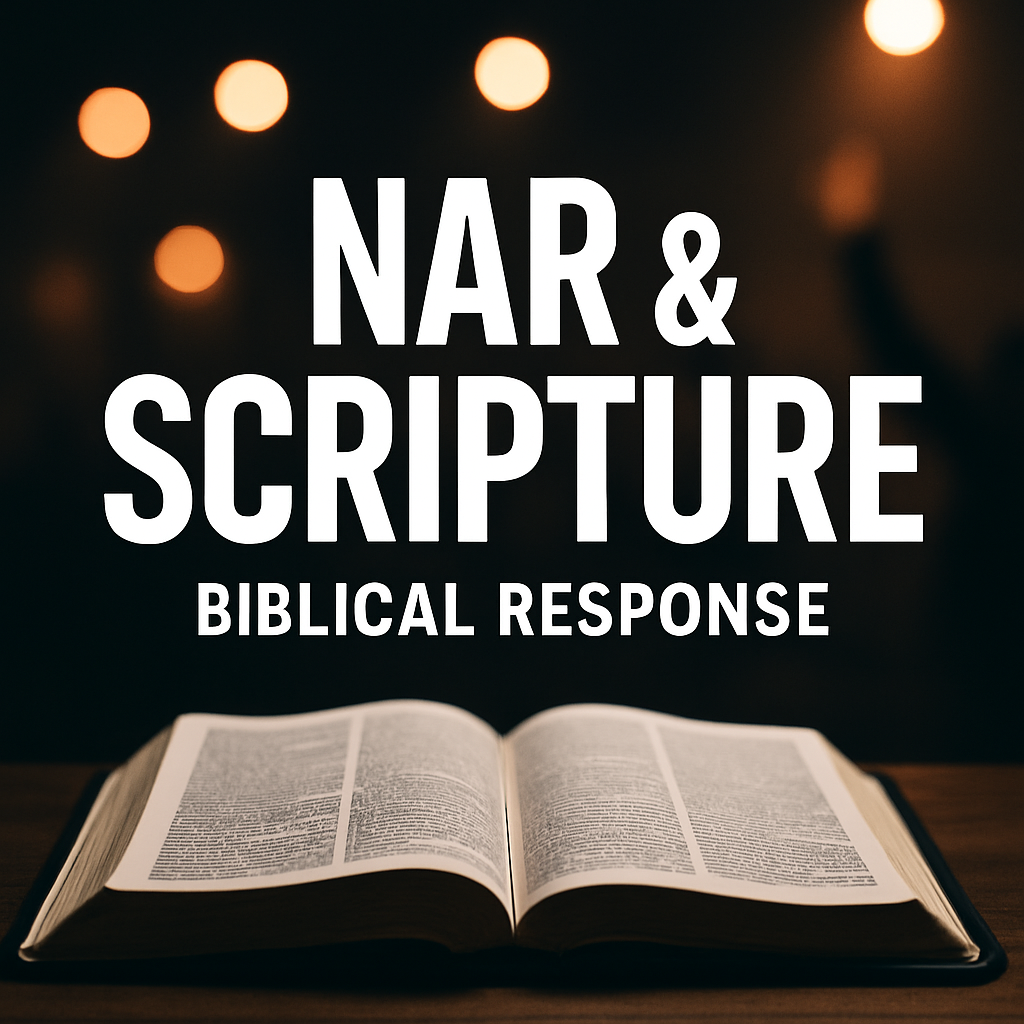⏱️ Estimated Reading Time: 3 min read
The New Apostolic Reformation and a Biblical Response
Q: What Is the New Apostolic Reformation (NAR)?
Understanding the NAR
The New Apostolic Reformation (NAR) is not a formal denomination, but a worldwide movement that has gained tremendous influence, especially through popular teachers, networks, and churches. Coined by C. Peter Wagner in the late 1990s, the NAR promotes the idea that God is restoring the office of apostles and prophets to govern the church in these last days.
At the heart of the NAR is a shift in authority. Rather than grounding leadership and doctrine in Scripture, the movement elevates self-proclaimed apostles and prophets who claim new revelations from God. This undermines the sufficiency and finality of God’s Word (2 Timothy 3:16–17, Hebrews 1:1–2).
Core Beliefs and Practices
- Restored Apostles and Prophets: NAR leaders claim unique spiritual authority, positioning themselves as governing offices of the church.
- Direct Revelations: Dreams, visions, and prophecies are often treated as equal to, or even above, Scripture.
- Dominion Theology: Frequently tied to the “Seven Mountain Mandate,” emphasizing control of cultural spheres to bring God’s kingdom to earth.
- Signs and Wonders: Heavy focus on miraculous healings and power displays as marks of true spirituality.
- Networking and Alignments: Ministries are pressured to “align” under apostolic networks, often producing authoritarian control.
Why It Matters
The NAR distorts biblical Christianity by redefining the nature of the church, the role of leaders, and the place of Scripture. Instead of Christ as the Head of the church (Colossians 1:18) and the Word of God as the final authority, people are led to trust in charismatic personalities and subjective experiences.
- False assurance: Extraordinary signs are treated as proof of God’s favor.
- Spiritual abuse: Apostolic authority structures often silence criticism and demand unquestioned loyalty.
- Doctrinal drift: By elevating ongoing revelation, the sufficiency of Scripture is denied.
A Biblical Response
The Bible makes clear that the apostolic office was unique and foundational (Ephesians 2:20). The apostles were eyewitnesses of the risen Christ, commissioned directly by Him, and their teaching now comes to us in the New Testament. No one today has that same authority.
Christ has given the church pastors and teachers to equip the saints through the ministry of the Word (Ephesians 4:11–16). Prophecy, as defined biblically, was always subject to testing and is fulfilled in Christ, the final Word (Hebrews 1:1–2).
Therefore, believers must test everything by Scripture (Acts 17:11, 1 Thessalonians 5:21). Any teaching or practice that undermines the sufficiency of God’s Word or shifts authority from Christ to men must be rejected.
Conclusion
The New Apostolic Reformation is not a harmless renewal movement, but a distortion of biblical Christianity. It replaces the sufficiency of Scripture with ongoing revelation, substitutes Christ’s headship with human apostles, and turns worship into a pursuit of signs rather than faith in the finished work of Christ.
As Paul warned the church in Colossae, so we must hear today: “See to it that no one takes you captive by philosophy and empty deceit, according to human tradition, according to the elemental spirits of the world, and not according to Christ” (Colossians 2:8).
Faithful Christians must stand firm on the Word of God, trusting that Christ is enough and His Word is sufficient.
For more from Contending for the Word Q&A visit us at Servants of Grace or at our YouTube.
Dave Jenkins is happily married to his wife, Sarah. He is a writer, editor, and speaker living in beautiful Southern Oregon. Dave is a lover of Christ, His people, the Church, and sound theology. He serves as the Executive Director of Servants of Grace Ministries, the Executive Editor of Theology for Life Magazine, the Host and Producer of Equipping You in Grace Podcast, and is a contributor to and producer of Contending for the Word. He is the author of The Word Explored: The Problem of Biblical Illiteracy and What To Do About It (House to House, 2021), The Word Matters: Defending Biblical Authority Against the Spirit of the Age (G3 Press, 2022), and Contentment: The Journey of a Lifetime (Theology for Life, 2024). You can find him on Facebook, Twitter, Instagram, Youtube, or read his newsletter. Dave loves to spend time with his wife, going to movies, eating at a nice restaurant, or going out for a round of golf with a good friend. He is also a voracious reader, in particular of Reformed theology, and the Puritans. You will often find him when he’s not busy with ministry reading a pile of the latest books from a wide variety of Christian publishers. Dave received his M.A.R. and M.Div through Liberty Baptist Theological Seminary.




